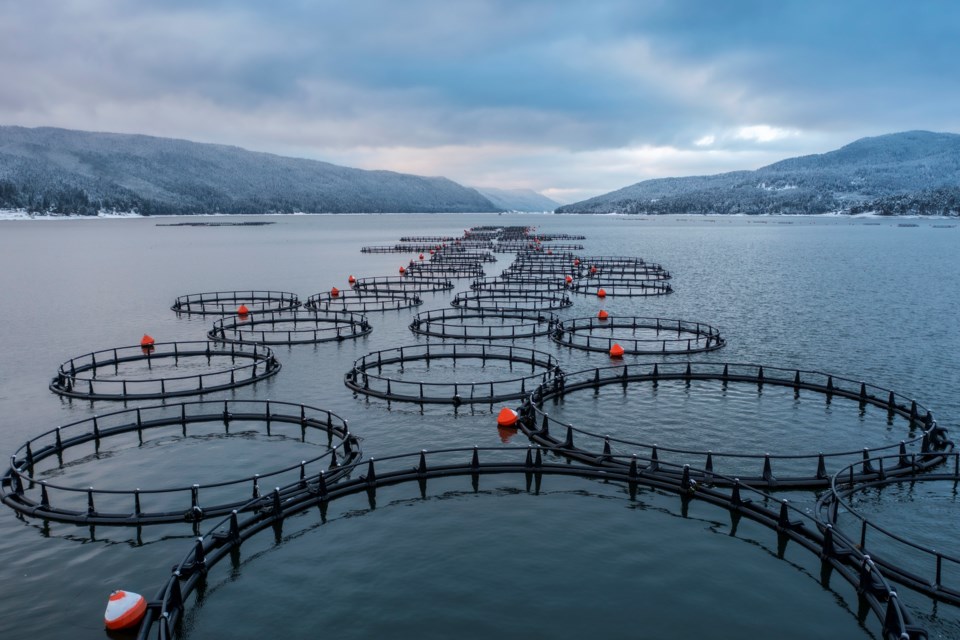A B.C. Supreme Court judge has turned down an attempt by the federal government to strike multiple lawsuits seeking damages for Canada's decision to effectively end salmon aquaculture in the Discovery Islands.
In four separate court actions, Mowi Canada West Inc., Allen Diving Ltd., James Walkus Fishing Co. Ltd. and Cermaq Canada Ltd. sought compensation for the impact the “unlawful” decisions had on their businesses, located off the east coast of Vancouver Island between Campbell River and the mainland.
In her decision, B.C. Supreme Court Justice Lauren Blake noted that part of the claims had already been heard before the federal court. In June 2024, a federal judge turned down a challenge from salmon farms and two First Nations who opposed government decisions not to renew aquaculture licences in the Discovery Islands.
The federal judge in that case wrote that former federal fisheries minister Joyce Murray’s 2023 decision not to renew fish-farm licences met consultation requirements and did not breach operators’ rights to fairness. The decision is currently under appeal.
In the latest court action, Murray, fellow former fisheries minister Bernadette Jordan, and the Attorney General of Canada claimed the companies were now attempting to “impermissibly collapse” the distinction between the federal judicial review process and the B.C. Supreme Court.
They applied to strike each of the four notices of civil claim brought against them in B.C. court.
Questions over impacts farmed fish have on wild salmon
The companies said they faced real economic harm and that the action to strike their compensation claims was based on a mischaracterization of their pleadings.
Each of the plaintiffs cited the 2012 Cohen Commission report into the decline of sockeye salmon in the Fraser River.
The report called for the Department of Fisheries and Oceans to gather more information to ensure aquaculture was not leading to a decline in wild salmon.
One recommendation called on the federal government to halt the issuance of new open-net salmon farm licences, cap production increases and limit licences to one year.
Another stated that the fisheries minister should prohibit open-net salmon farms in Discovery Bay if she determined the risks to wild salmon were anything more than minimal.
In 2019, then-prime minister Justin Trudeau issued a mandate letter to then-fisheries minister Jordan directing her to work with B.C. and First Nations to create a plan to transition away from open-net pen farms by 2025.
The next fall, a Department of Fisheries and Oceans risk assessment concluded that the transfer of nine pathogens from farmed salmon to wild salmon posed a minimal threat to Fraser sockeye salmon. Those and later DFO findings have been disputed by several independent scientists.
Three years later, then-fisheries minister Murray did not renew 15 aquaculture licences in the Discovery Islands, prompting the latest round of court action.
Companies' claims have chance of success
In her decision, Justice Blake weighed whether the four lawsuits disclosed a reasonable cause for action and were not certain to fail.
In the end, she ruled the companies’ pleadings had a chance of success when it came to proving:
- the ministers engaged in an abuse of court process;
- that their court actions were more than “thinly veiled attempts” to avoid the effects of government decisions;
- that the ministers were at the least “subjectively reckless or wilfully blind” to unlawful conduct;
- and that the ministers had knowledge their acts would likely injure the companies.
Blake struck two of the companies’ claims — that property was taken from them and that the ministers exercised “abusive administrative action” — saying they were “bound to fail.”
Canada had argued that if the judge found that any of the companies’ causes of action were bound to fail, giving them leave to amend their claims would amount to an abuse of power because they were already argued before the federal court.
In all but the two struck claims, Blake said she was not persuaded by Canada’s argument.
The judge directed each side to reach an agreement on which damages should be sought by the plaintiffs in the four cases. If they can’t do that, she said, they should file a request to appear before the B.C. Supreme Court.
It's not clear how the latest decision could re-open a new round of litigation connected to the Discovery Islands and the federal government's decision to phase out open-pen net salmon farms off B.C.'s coast.
A lawyer representing three of the companies turned down a request to comment.
“The Government of Canada is reviewing the court decision and has no comments at this time as the case remains before the court,” said a spokesperson with Fisheries and Oceans Canada.




